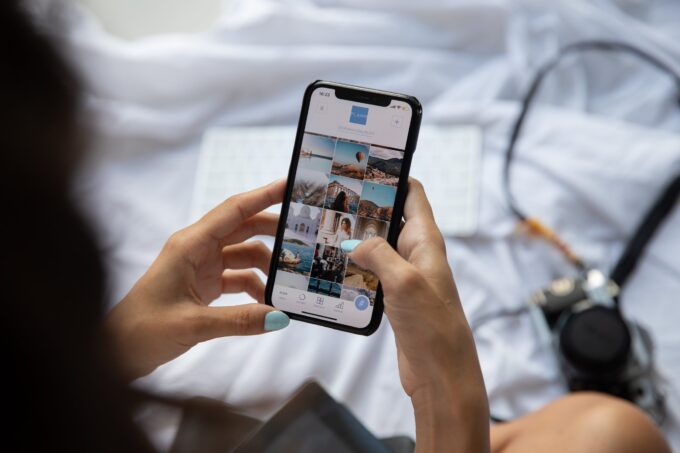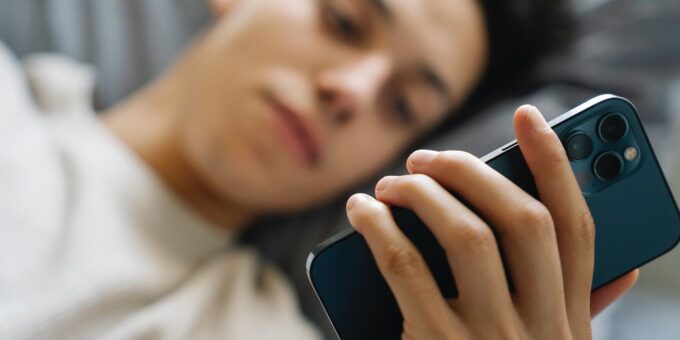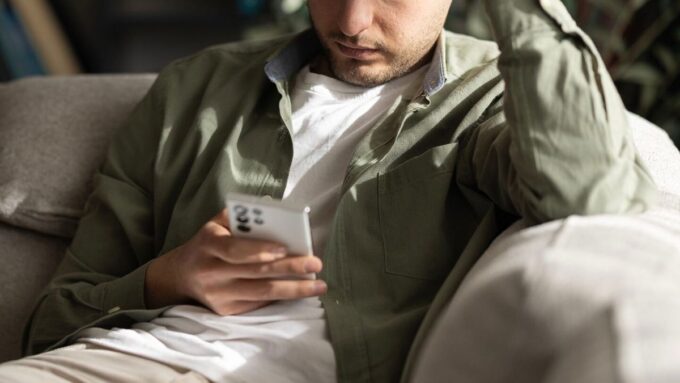Have you ever checked your phone and realized hours have disappeared? A recent study found that the average person spends over four hours a day on their mobile phone. That’s a significant portion of your waking hours spent glued to a screen. It’s no wonder more people are stepping away to reclaim their time, energy, and mental health.
Key Points:
- People are turning to detoxes to escape the grip of technology.
- A detox can reshape habits and reduce stress.
- Research supports the benefits of disconnecting for mental clarity.
- Real-life connections improve without constant notifications.
Why People Are Turning to Detoxes in 2024

The pull of constant notifications and endless scrolling has left many people feeling overwhelmed. Detoxes are not just a trend—they are a necessity for regaining control. Platforms like ItsOnSiteTV are now covering stories on how digital disconnection can impact mental health and relationships.
Instead of staring at devices, people are reconnecting with hobbies, exploring nature, and rediscovering real-world relationships. Many report a sense of calm and freedom when they step away, allowing them to rediscover who they are outside of their digital identities.
The Negative Effects of Constant Screen Time
Physical Impact
Hours spent staring at phones or computers take a toll on the body. Blue light emitted by screens disrupts the sleep cycle, leaving people tired and groggy. Poor posture caused by looking down at devices can lead to neck and back pain, which often becomes chronic without intervention.
Research shows a significant rise in eye strain complaints, often called “digital eye fatigue.” Symptoms include dryness, irritation, and headaches—all of which make people less productive and more irritable.
Mental Strain
The constant stream of notifications, curated online lives, and addictive algorithms leaves many feeling anxious and inadequate. Psychologists point to comparison culture, where people measure themselves against unrealistic portrayals online, as a major driver of low self-esteem and depressive symptoms.
Stress levels climb when people feel tethered to their phones, afraid to miss out on work emails, social updates, or trending news. Disconnecting offers a lifeline, giving people space to breathe and reset.
How a Detox Helps You Reconnect with Yourself

Source: makeuseof.com
Taking a break from apps doesn’t just clear your screen—it clears your mind. Many people use this time to explore who they are without external influences, creating a stronger sense of identity.
Three Key Benefits:
- Improved Focus
Unplugging gives the brain a break from overstimulation. Productivity soars when there are no interruptions, allowing people to tackle long-postponed projects or simply enjoy the peace of uninterrupted time. - Stronger Relationships
Spending uninterrupted time with loved ones builds deeper bonds. Without distractions, people engage in meaningful conversations and shared activities, creating lasting memories. - Better Mental Health
Studies confirm that reducing screen time leads to lower anxiety and increased happiness. Many describe feeling lighter and more present after even a short detox period.
Detox Strategies That Work in Real Life

Source: ktvz.com
It’s easy to say, “Take a break from technology,” but putting it into practice can be daunting. Small, actionable steps are often more effective than sweeping declarations.
Steps to Start:
- Set App Limits: Most smartphones now have built-in features that restrict app usage after a certain time.
- Schedule Offline Time: Block out hours during your day where no devices are allowed. Start with one or two hours and gradually extend.
- Designate Tech-Free Zones: Keep gadgets out of specific areas, such as bedrooms or dining spaces, to promote relaxation and family interaction.
Research shows people are more likely to stick to detox habits when they focus on replacement activities. Think hiking, crafting, or reading—all activities that are harder to do when scrolling.
How Long Should a Detox Last to See Real Benefits?
The duration depends on personal goals. A weekend detox might be enough to reset habits and notice small changes, but longer breaks bring deeper transformations. Many people report that a week or two away from screens reshapes their routines entirely.
Short breaks help you identify triggers—moments where you instinctively reach for your phone. Longer breaks encourage reflection, forcing you to confront questions like, “What am I really looking for online?”
Detox Success Stories and Lessons Learned

Source: netnewsledger.com
A writer who participated in a two and a half detox shared how the experience reshaped their habits. Without the constant distraction of notifications, they finally finished writing a book outline that had been postponed for months.
Others have used the time to explore hobbies they never had time for, like painting or gardening. Parents, in particular, notice stronger bonds with their children, as tech-free family activities replace individual screen time.
Lesson learned? The detox isn’t about deprivation—it’s about rediscovery.
Why 2024 Is the Year of Digital Boundaries
More people than ever are realizing that detoxes are not just about unplugging—they are about setting boundaries. As awareness grows, workplaces are adopting policies to reduce screen dependence. For instance, some companies have introduced “no-email weekends,” encouraging employees to disconnect fully.
Communities are also coming together to support healthier habits. Local clubs and organizations now offer tech-free events, providing a space for people to connect in person. Schools are also teaching students how to manage their tech use, instilling healthier habits from a young age.
Three Myths About Detoxes You Should Ignore

Source: happiful.com
Myth 1: Only Extreme Users Need a Detox
Even those who feel in control of their screen time can benefit. Detoxes aren’t just for those addicted to their phones—they help anyone seeking balance.
Myth 2: Detoxing Means No Technology at All
A detox doesn’t mean avoiding all devices forever. It means learning to use them more intentionally.
Myth 3: Detoxes Are a One-Time Fix
Habits take time to change. Detoxes are often the first step toward ongoing improvements in how people manage their time and attention.
How Detoxes Improve Workplace Productivity
The impact of detoxes is spilling into professional life. Many employees report feeling more focused and less stressed after reducing screen time. Employers are taking notice, with some companies offering mindfulness training or mandating offline hours.
Key Benefits for Businesses:
- Higher Efficiency: Fewer distractions lead to faster task completion.
- Better Collaboration: Employees engage in more meaningful discussions when devices are not involved.
- Reduced Burnout: Less time online means fewer employees feeling overwhelmed.
Final Thoughts: Are You Ready for a Detox?
Detoxes are not about rejecting technology but about reclaiming control. The constant pull of screens often distracts people from what truly matters—relationships, personal growth, and inner peace. A break offers a fresh perspective and a chance to redefine priorities.
Why not start today? Even a small step toward disconnecting could lead to a richer, more meaningful life.



